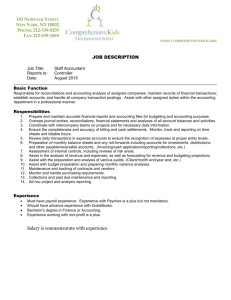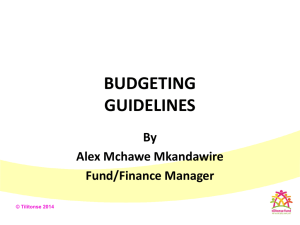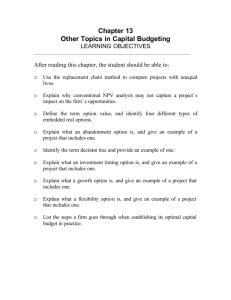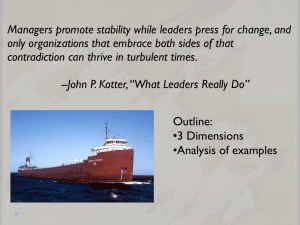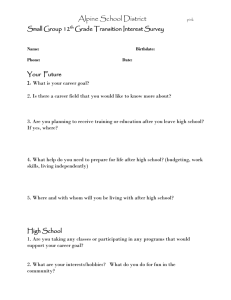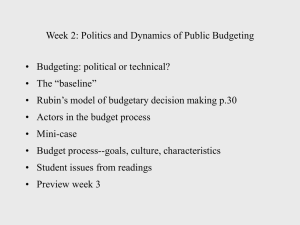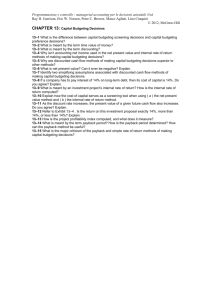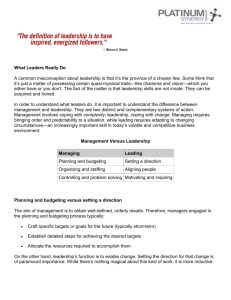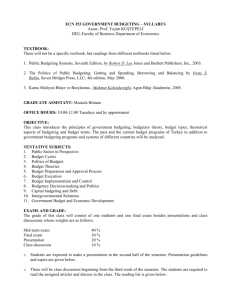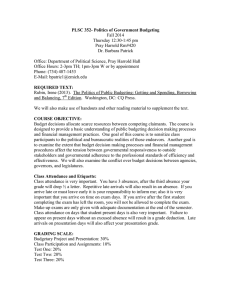Management Topics at Peer - UNC School of Information and
advertisement
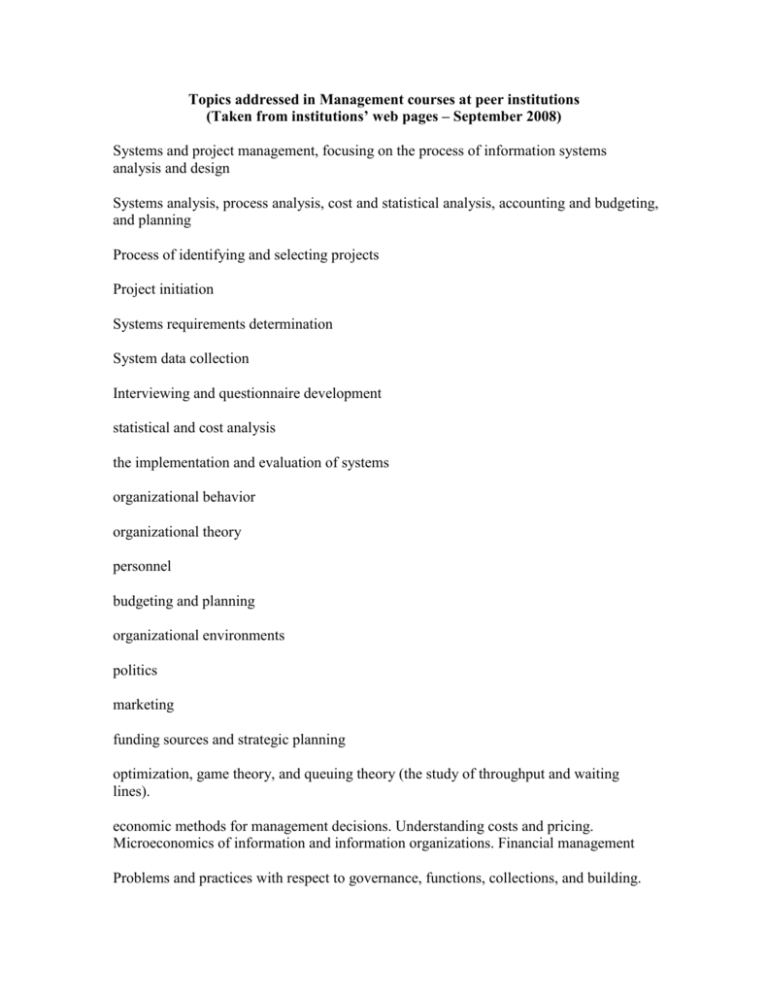
Topics addressed in Management courses at peer institutions (Taken from institutions’ web pages – September 2008) Systems and project management, focusing on the process of information systems analysis and design Systems analysis, process analysis, cost and statistical analysis, accounting and budgeting, and planning Process of identifying and selecting projects Project initiation Systems requirements determination System data collection Interviewing and questionnaire development statistical and cost analysis the implementation and evaluation of systems organizational behavior organizational theory personnel budgeting and planning organizational environments politics marketing funding sources and strategic planning optimization, game theory, and queuing theory (the study of throughput and waiting lines). economic methods for management decisions. Understanding costs and pricing. Microeconomics of information and information organizations. Financial management Problems and practices with respect to governance, functions, collections, and building. Management functions as applicable: planning, organizing, innovation, staffing, budgeting, controlling managing knowledge workers; managing teams (incl. virtual ones); collaborating across disparate units, giving and receiving feedback; managing the innovation process (incl. in eco-systems); managing through networks; and managing when using communication tools (e.g., tele-presence) What are the most painful pitfalls and how to avoid them What is your personal project management style and its weak points How to build a high performing team Dealing with difficult people Risk and quality management practices and procedures involved in the management and administration of libraries and information centers Studies the library's physical plant in the light of changing concepts and patterns of library service; analyzes present-day library buildings (both new and remodeled) and their comparison with each other as well as with buildings of the past; examines the interrelationship of staff, collections, users Change management Provides a thorough introduction and orientation to the objectives, organization and operation of special libraries Applies theories and techniques of management to libraries, information centers, and information enterprise, concentrating on political processes, leadership, communication, human resources, organizational structure, decision making, planning, and control Stresses systems development, staffing and organization, technology infrastructure, project selection, justification and funding, and data Emphasizes communication about the issues to senior management Systems approach to library and information services, emphasizing managerial decisionmaking and problem-solving Model building motion and time study cost analyses, system design and evaluation methods Administration of information programs, services, and projects, including the role of leadership in management developing mission, vision, and goals providing effective management for results managing professionals financial management professional conduct and ethical issues Management of projects through planning and execution of lifecycle phases estimating costs, managing risks, scheduling, staff and resource allocation, team building, communication, tracking, control and other aspects of successful project completion organizational behavior, organizational theory, personnel, budgeting, planning. organizational environments, politics, marketing, strategic planning, funding sources Management information systems (MIS) as a framework for decision support in libraries and other organizations, including analysis of decision tasks and supportive information requirement data sources and management information flow patterns planning and control loops influence of organizational and end-user characteristics on the MIS design and implementation An introduction to the current state of management theory ethics and practice focusing on leadership The management of organizational change


